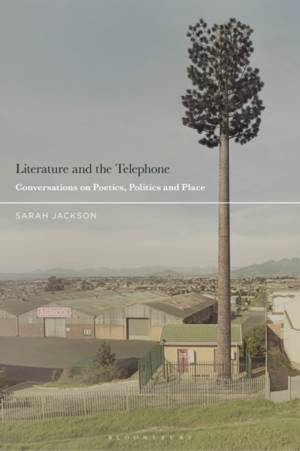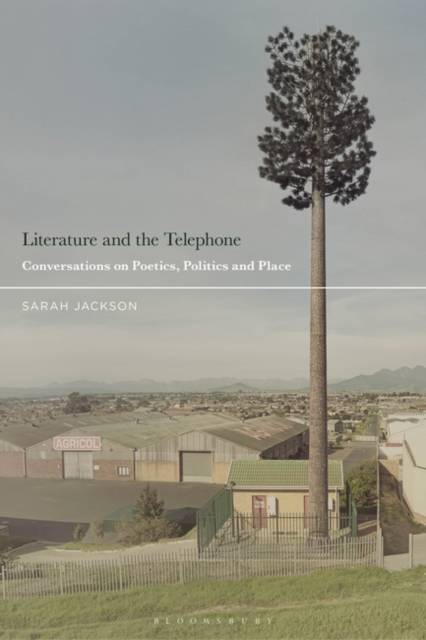
- Afhalen na 1 uur in een winkel met voorraad
- Gratis thuislevering in België vanaf € 30
- Ruim aanbod met 7 miljoen producten
- Afhalen na 1 uur in een winkel met voorraad
- Gratis thuislevering in België vanaf € 30
- Ruim aanbod met 7 miljoen producten
Zoeken
Literature and the Telephone
Conversations on Poetics, Politics and Place
Sarah Jackson
Hardcover | Engels
€ 203,95
+ 407 punten
Omschrijving
Literature and the Telephone explores the ways that the telephone taps into the operations of reading and writing, opening up our understanding of how, where and why literary communication takes place.
Addressing the telephone's complex, multiple and mutating functions, and drawing on recent work by writers and thinkers including Sara Ahmed, Stacy Alaimo, Judith Butler, Nicholas Royle and Eyal Weizman, this open access book considers the linguistic, technical and conceptual disruptions of the literary telephone as well as the poetic and political possibilities of the exchange. Focusing on the telephonic effects of post-war writing by authors such as Mourid Barghouti, Caroline Bergvall, Tom Raworth, Muriel Spark, Ali Smith and Rita Wong, Sarah Jackson proposes that the uncanny logic of the telephone, and its capacity for ordering and disordering the text, speaks to some of the most urgent concerns of our era. Examining topics ranging from surveillance and migration to warfare and electronic waste, Jackson argues that the literary telephone offers new ways of conceiving ethical and creative technological futures, as well as different modes of reading, writing and listening across cultures. The ebook editions of this book are available open access under a CC BY-NC-ND 4.0 licence on bloomsburycollections.com. Open access was funded by Nottingham Trent University.Specificaties
Betrokkenen
- Auteur(s):
- Uitgeverij:
Inhoud
- Aantal bladzijden:
- 248
- Taal:
- Engels
Eigenschappen
- Productcode (EAN):
- 9781350259607
- Verschijningsdatum:
- 19/10/2023
- Uitvoering:
- Hardcover
- Formaat:
- Genaaid
- Afmetingen:
- 156 mm x 234 mm
- Gewicht:
- 521 g

Alleen bij Standaard Boekhandel
+ 407 punten op je klantenkaart van Standaard Boekhandel
Beoordelingen
We publiceren alleen reviews die voldoen aan de voorwaarden voor reviews. Bekijk onze voorwaarden voor reviews.







